On Living Life in a Body of Dust
Maggie Sifuentes • August 26, 2021
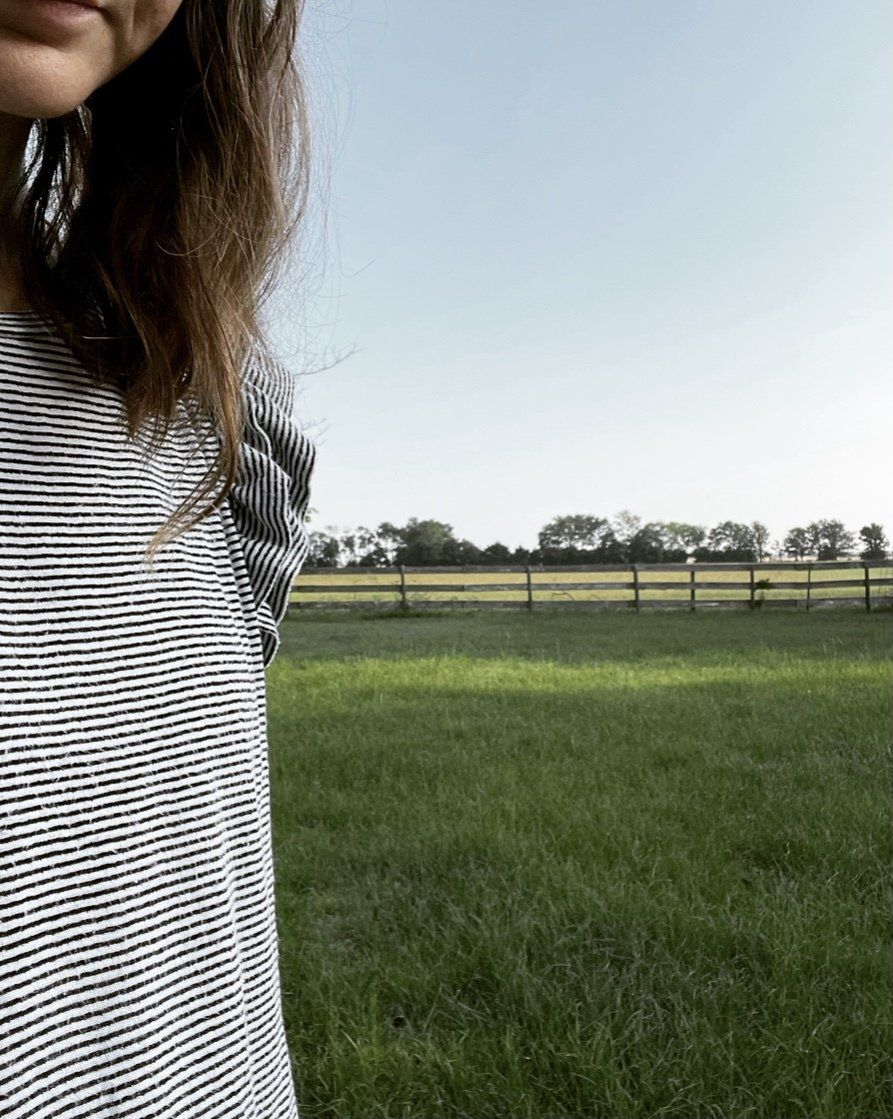
I had a dream in the night, early Wednesday morning, that felt reflective of feelings in my heart over the nature of this life and the invisible barriers that can lie between us as people.
I dreamed I was with my family and we lived in a garden. I was watching my kids giggling and exploring the pathways surrounded by vines and trellises. And the garden had been formed around small little one-room structures that were apparently our bedrooms, our kitchen, and a sitting room.
It was a happy dream and almost carefree. Almost.
For, while my children were playing in one structure, I needed to tend to something in another and I had a concern for their safety. In the dream I was taking measures to do what I could to ensure that they would be safe from any danger outside the garden. And while the dream was full of a sense of enjoyment in being their mother and in getting to perform the role of tending the garden, the dream also held a sense of the dangers that lived inside of me.
My dream felt like a reflective reality. For while the garden of this life can be so full of beauty and enjoyment, there are dangers all around and even inside my own heart that need be considered and attended to with care.
This week, while my coffee cup sat with me at our round kitchen table and my youngest pulled his cars and trucks over the sticky kitchen floor, I read about how we on this earth bear in our bodies the image of the man of dust, the image of Adam. (1 Corinthians 15.) And it resonated with the feelings of my heart.
It is a sorrow to feel and sense the image of dust there inside of your own mortal body. It is a sorrow to feel and sense that image of dust inside of all of the people you love.
And it is sorrow that is felt especially when things become broken in the spaces between us.
When we are ever needing wisdom in how to care for the spaces between ourselves and all whom we love.
As long as we all live inside these bodies of dust, we will always have to take care with the dangers both outside and inside of the gardens of our lives even while we enjoy the beauty and the love.
Yet, the heart can hold hollow places of hope for the beauty of what is not yet.
And at my kitchen table, the same passage that spoke of these perishable bodies of dust, gave a promise of hope for what is coming.
1 Corinthians 15:49 shares this hope of promise. “Just as we have borne the image of the man of dust, we shall also bear the image of the man of heaven.”
When this verse speaks of “the image of the man of heaven” that God’s children will one day bear, it is speaking of something even more than the image of God that every human soul has been imprinted with since creation, which makes each living person an intrinsically valuable soul, imago dei.
The phrase “the image of the man of heaven” speaks of the spiritual body that Jesus has won for us through the death of His own human life, and the resurrection when He became the firstborn of the imperishable bodies that all of God’s children will put on in victory through faith in what He has won for us.
And for all who call on Jesus, though we have walked around in this image of Adam’s body of dust, we will one day bear not only the image of God, our Creator in our souls, but we will then also bear the image of our Savior, the man of heaven in our new bodies.
These souls that have long borne the image of God will no longer have to walk around in bodies of dust. We will be new.
So while we walk around now in these images of dust, this sorrow only has to be ours for a little while. By faith, through His grace, we will be swallowed up in victory.
And the morning after reading about it, I woke up from the dream I had, longing for the day when we can enjoy the beauty of togetherness with God and each other without concern for all that can go wrong between these bodies of dust.
May we live knowing that this longing has a future and a hope.
When the longing leaves us feeling lonely for more untethered union and communion than what this life may afford us, may we give thanks for the promise we have.
And because of the promise, may we be steadfast in tending to the garden of life that is ours in the Lord.
While we have dangers to care for within and without, to which we must not turn a blind eye, it is true that “this light momentary affliction is preparing for us an eternal weight of glory beyond all comparison.” (2 Cor. 4:17)
It is the tending of this very life that God has intended to use for our good and for His glory. As we learn to care for the dangers in the midst of a life where we are also learning to gratefully embrace with certainty all of the beauty and love of our days and of each other, this struggle that we carry in the balance
is preparing a glory that we cannot yet see.
Even while we walk another day in this world, God is sovereign over all of these bodies of dust.
He is sovereign over any wrong we have seen and sovereign over each wrong that we have done.
As our compassionate, all-knowing Father, He is able to use all of it to grow and prepare His children for the glory that is coming. He sees the broken places, and He knows the eternal weight of it that cannot compare with anything less than what He has planned for His children.
“Therefore, my beloved brothers, be steadfast, immovable, always abounding in the work of the Lord, knowing that in the Lord your labor is not in vain.” (1 Corinthians 15:58.)

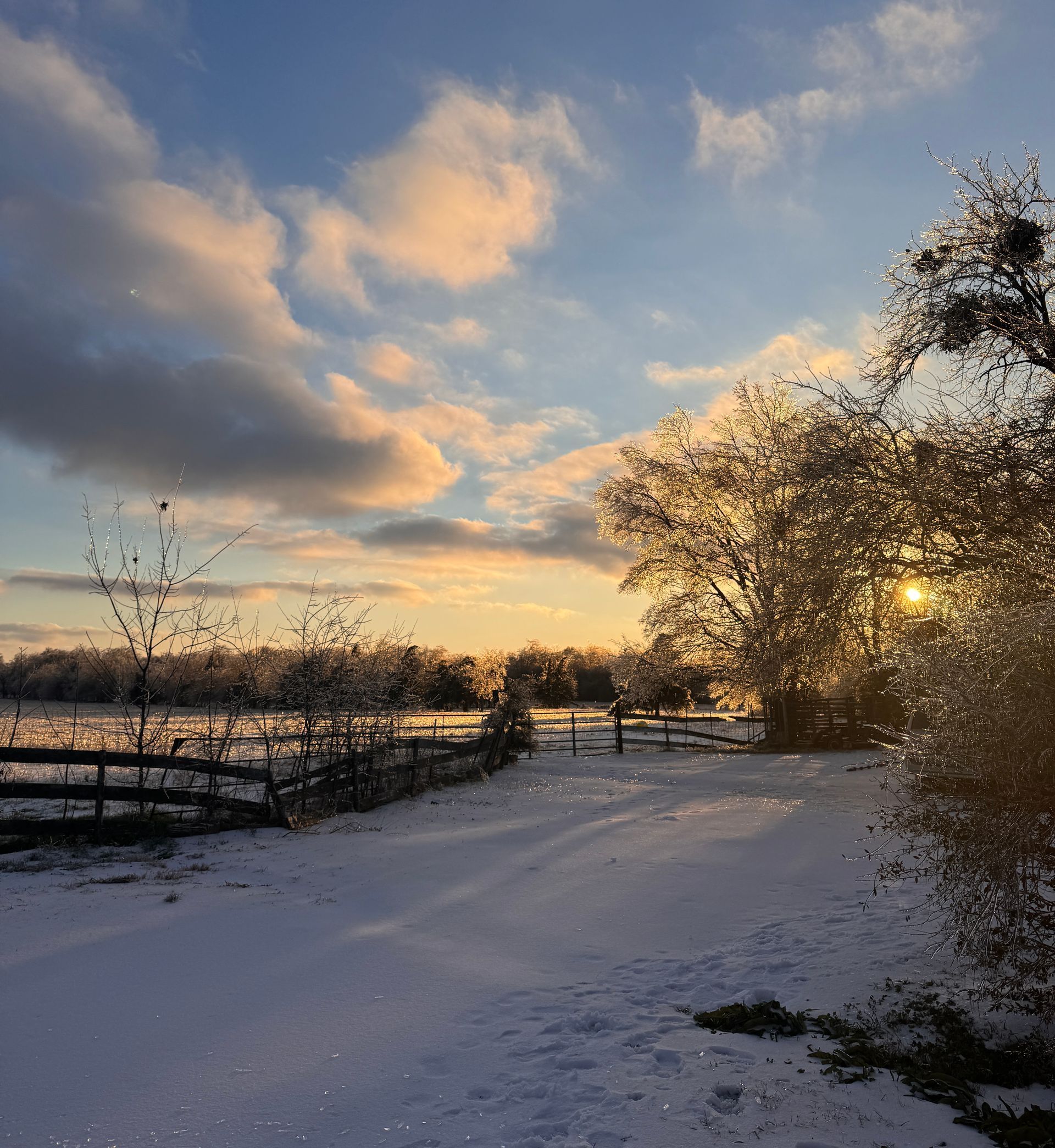
What we do with longing will shape the course of our lives. It’s essential to consider what we long for—to dig beneath the surface of a wish, and seek to uncover what we truly want. In the words of C.S. Lewis… “We remain conscious of a desire which no natural happiness will satisfy. But is there any reason to suppose that reality offers any satisfaction to it? ‘Nor does the being hungry prove that we have bread.’ But I think it may be urged that this misses the point. A man’s physical hunger does not prove that man will get any bread; he may die of starvation on a raft in the Atlantic. But surely a man’s hunger does prove that he comes of a race which repairs its body by eating and inhabits a world where eatable substances exist. In the same way, though I do not believe (I wish I did) that my desire for Paradise proves that I shall enjoy it, I think it a pretty good indication that such a thing exists and that some men will. A man may love a woman and not win her; but it would be very odd if the phenomenon called “falling in love” occurred in a sexless world. Here, then, is the desire, still wandering and uncertain of its object and still largely unable to see that object in the direction where it really lies.” -C.S. Lewis, The Weight of Glory and Other Addresses , 33. I long for a world where misunderstandings don’t fog our vision. Or, at least a world where that confusion can be cleared up quickly. Yet, life reminds me of a different reality. Bad memories rise. We ponder pain. We worry. Worry stirs fear. Fear clouds judgment. John’s need for quiet is seen as a threat to Jane. Jane’s need for comfort is seen as a threat to John. All the while, they want whatever lies beyond the disconnect. But what does one do with the “want” in the meantime? What do you do with longing in a life where mistaken meanings can carry on for weeks, or a lifetime? Desire is a fire in the dead of a freezing storm. Without it, the cold will thicken your blood and work to stifle the beat of your heart. But, tend to desire with care, or the fire itself may sweep over you with its flames. To tend to desire is the summons of life, and it is a solemn and glorious call. There is longing which keeps the heart beating, keeps a life warm—and helps to warm the lives of others. We keep a fire going, knowing that what we do with longing becomes the kindling of hope. When we remember what we wait for, the slow, steady tending is worth every weary moment. We hope for the day when the cold will be gone, and fires will never consume what is good. “The sufferings of this present time are not worth comparing with the glory that is to be revealed to us” (Rom. 8:18). We live for the hope of redemption to come. Bad memories rise. But fear cannot defeat Love, and Love is here to hold and share. Jesus draws close to touch the leper. Love leans close to touch the scars. Pain can turn to imagine a future where each wounded place we meet is an opportunity to Love. More than all we can imagine, our good God can move us with hope. With an eternal dream before us, we can learn a long patience. We savor the moments when warmth is shared. We make beauty with our hands while the fire burns on. We’ll consider what we long for. For goodness is in reach.
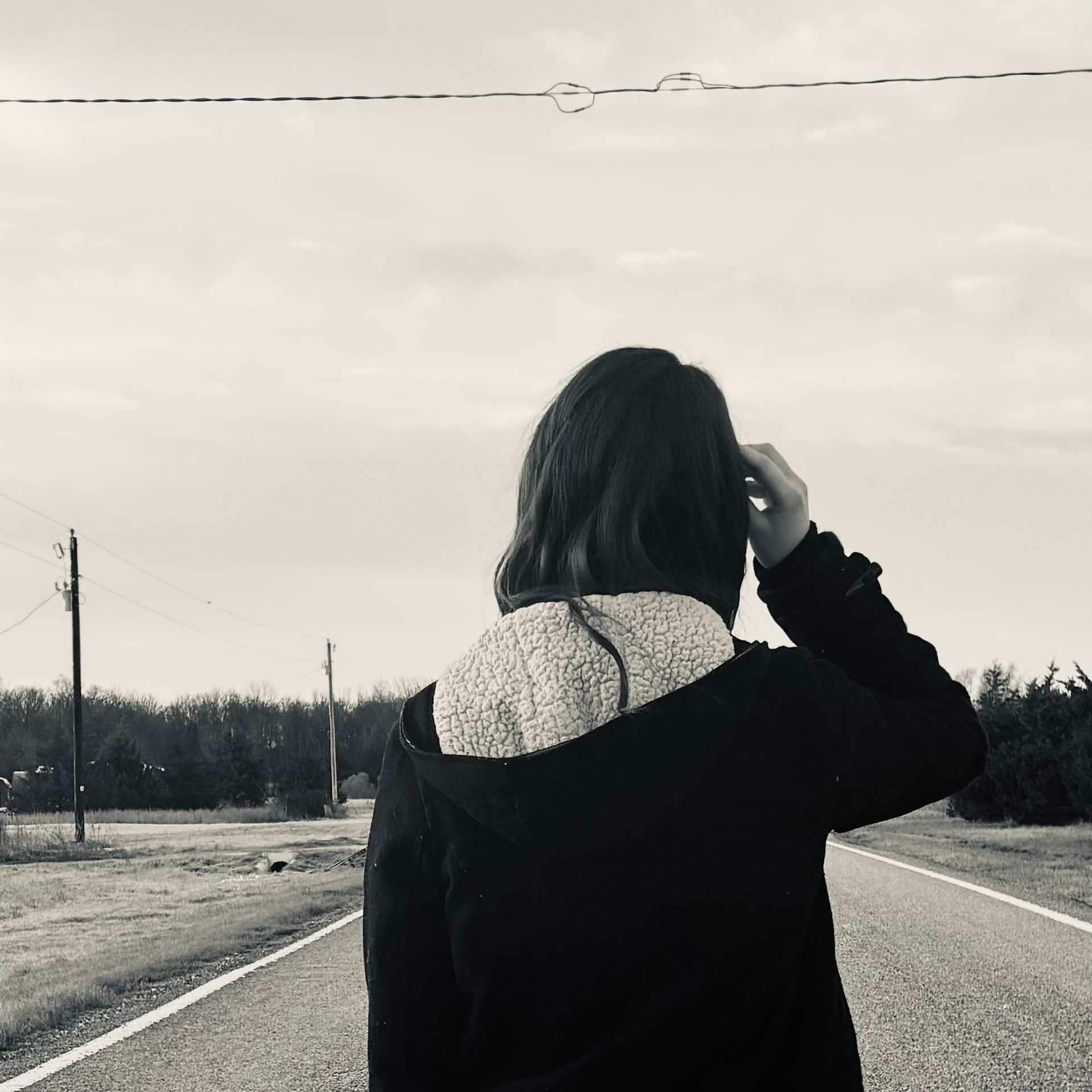
Sometimes I want January to feel completely new. But she doesn’t show up to replace the troubles of yesterday. She doesn’t come with smooth, new roads, and old damage erased. Instead, she shows up with a new years’ worth of morning light—to shine on the same rugged lines of a perfectly bumpy life. January arrives with familiar potholes and construction zones. Life’s potholes can drive me mad, but the madness comes with memories. And the memories are bittersweet. A life with potholes is a life where I get to experience things that are broken, and the quaint mystery of moments when we bear with imperfections. On Friday morning, I opened the door to leave for my walk, and the tranquility of the day’s rhythms gave way to a familiar, repulsive stench. A few times a year, chicken manure from the nearby egg farm is spread across the fields. The smell is vile and I wanted to retreat, but my dog noticed my step outside. He wriggled and bounced, his tongue out with anticipation. He’s not contained by a fence or leash, but “people walks” are his favorite. Somehow, his playful eyes swayed me to believe a walk in these conditions couldn’t be too bad. Many mornings, Saucer and I walk the road to the creek bridge and back. That day, I beat Saucer to the creek bridge, and the fields held my attention. They kept me walking farther. I’ve loved this place since I was a child, when the best parts of the year were the days at Grandpa’s farm. I spent years dreaming about these fields. Now I’ve lived here for almost ten years of my adult life—about as long as the egg farm has been here, chicken manure and all. For nearly ten years, the smell keeps coming around. Yet, for ten years, this stench has never made me feel done with living here. What do I know deep inside? A place is always more than its imperfections. The goodness of this place stays with me even when the stench is here. People are like places. I want to believe that. People are always more than the stench of bad moments. How do I look for the “more?” At Grandpa’s farm, when life is imperfect, my old longings rise up and help me see more. The deep roots of an old dream make the troubles seem smaller. I’m sure this is a small glimpse of a larger truth. Beneath the temporary frustrations and quick-fix wishes of today, the soul is pregnant with good, old longings. Our Maker has set eternity into our hearts (Eccles. 3:11). Deep down inside us, we long for what is good. We long to connect with each other in fruitful ways, and to conduct ourselves in ways that do not make that difficult. Deep down, we long to live in a world where our ears tune in to the good in each other, and our lips speak like our Father, who calls good things into being with His words. Somewhere beneath the billows inside me, this is what I long for. When life is imperfect, old longings can help me see more. While the roots of my dreams are shallow still, I’m loved by a God who knows. He meets me with His own longing heart and tethers my soul to Him. So here is a January with familiar troubles. And longings as old as eternity. January can come as she is.
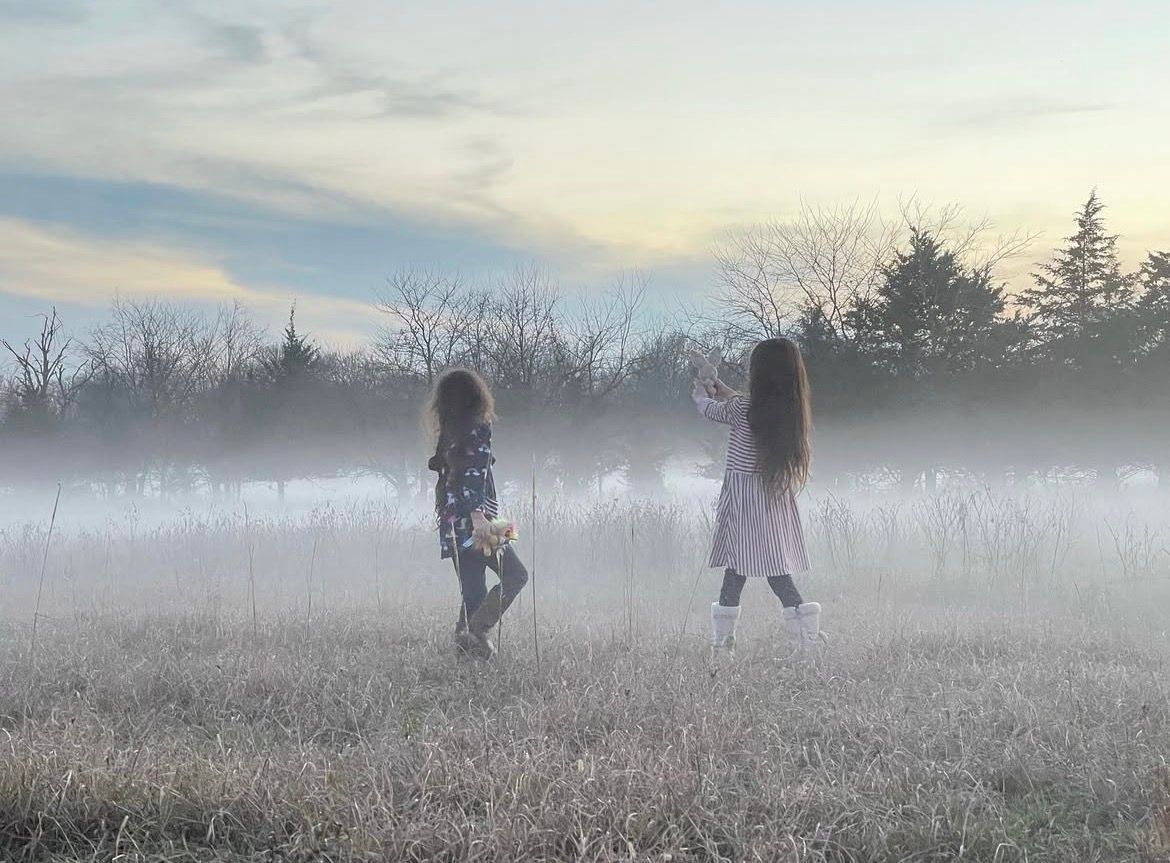
Seven years ago at the beginning of December, we put a big red bow on the top of our Christmas tree. A few days later, my kindergartener came home from school and looked up at that bow for a while. Then she found some paper and markers and set to work at the table. With her little hands, she earnestly squiggled out her best representation of a star, and colored it yellow before she found the scissors to cut around it. She poked a hole in the top point and strung her star onto a blue pipe cleaner. When finished, Amayah held it out to me and said, “Mommy, you can use it for the tree. We need a star.” So, I removed the red bow from our tree and used the pipe cleaner to tie the star in place. The top of the tree curved in a point, and there hung our paper star. Amayah knew what she needed to see on top of the Christmas tree, and she couldn’t ignore it. The memory of her paper handiwork is a great reminder to me that good gifts are not elusive. I’m directionally challenged. The week after Amayah made her star, I set out for Mount Vernon. Somehow I got turned around and ended up all the way in Sulphur Springs before I realized my mistake. Minutes after I rerouted, my van ran out of gas. At my own fault, I'd become stuck on the road nearly an hour from home. As someone who’s lost my way often, the star of Christmas is beautiful to me. To show the way to Jesus, God put a star in the sky—like an arrow pointing the way. The simple need was to follow. God’s way of giving directions is comforting when you’re not only directionally challenged on the road, but in your heart too. Amayah’s paper offering reminded me that even as we’re given the gift of God in human skin, we’re also loved by a God who never stops lighting the way to find His good Gift. A God who is faithful to light the way is just the kind of care my heart needs. A voice in my head fights to confuse my sense of direction. When I want to give and receive love, memories play scenes of shame. I become a little girl presenting a bunch of dandelions picked from the grass…while my gift is dismissed and tossed away. When shame speaks through my memory, it drives me away from love. Even still, there is ever-present longing tucked away in the echoes of the past. Those tender yearnings point toward a journey—to find the place where I feel safe to let my inner child exhale. Like Amayah offered her star, we all have a child inside with intuitive gifts to share. When a child gives a gift, they stretch out the fragile shoots of their growing love, unhindered by decades of disappointments. A child’s gift can touch your heart and draw you to the days when life felt so young and new—a blank canvas that couldn’t wait to see the beauty it became. Love is the star that is always a learning, growing, testing dare to let the heart be a child one more time. Remember the child you need. And there is One who made Himself into a child-gift in the most complete way. He comes as a baby and offers Himself as a gift to the child in me. He came as a gift wrapped inside a womb, and Joseph’s first thought was to quietly disown the mother who encased him. Through the bloody entry of a woman’s birthing body, Jesus gave the tender gift of Himself. His offering given with wide-open love was met by King Herod’s order of mass slaughter, a hope to put the new child to death. The Child of Christmas gave the most vulnerable gift, becoming a child for the lost child heart. He offered love His whole life long, until He was crushed. He steps into a world of wounded hearts…and he becomes wounded beyond recognition in a world where we know this language. Who doesn’t know the wounding of love? Who never longs to feel whole again? He welcomes the wounds. He stays for the crushing. To the death, He never falters, never ceases to come as a child holding out His gift still. There is nothing like a gift from a child. A gift from a child can warm the coldest part of my heart. And only the touch from a baby’s hand can reach for me with enough tenderness to draw me from my fearful sense of direction toward the light of Love. I need a gift only a child could give. And with Christmas, as always, it’s what I’m given. The sovereign Author of Christmas remembers the child in me. When I’m too discouraged to hold out dandelions or make paper stars, He stoops down to speak a language my heart can hear. Here is a King who becomes a tiny gift. He is determined to light up my soul with childlike purpose. There are good gifts to bring. Jesus delights in gifts of frankincense and myrrh and also the gift of a manger and the lullaby’s of animals. Why does He receive the gifts of those who can give only what He’s provided? Because He is a King who treasures the beauty of a gift from a child. For broken hearts, there are tiny fingers who can touch fallow ground and make room for the tender shoots of love to grow again. Where there is room for the child, the child makes room for love. When we are lost and turned around, He lights the way. Do you long for a gift from a Child? Like a star, this longing too, is His gift. Follow the star. The Lord has come. “When they saw the star, they rejoiced exceedingly with great joy. And going into the house, they saw the child with Mary his mother, and they fell down and worshiped him. Then, opening their treasures, they offered him gifts...” (Matt. 2:10-11).
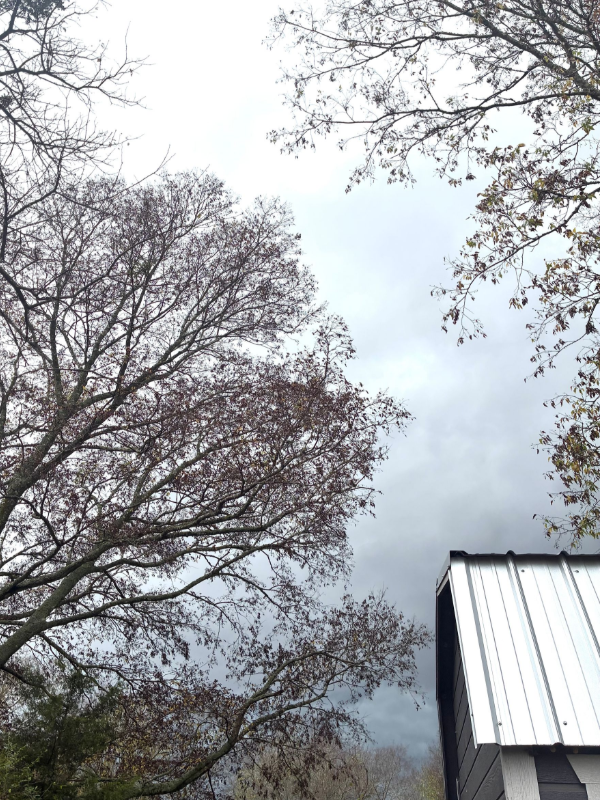
Do many people have a specific emotion they feel the most awkward with? Mine is anger. In some ways, I’d rather meet any other feeling. When my worst memories play across my mind, anger appears as the villain, the direct enemy of love. Whether the anger is from others, or from me, the narrative says that anger destroys. It equates with shame and loss. The rise of this emotion can begin to feel like a threat. Don’t let your anger out, or else. There’s validity to my concerns. Out-of-control anger can hurt people deeply. It can damage and destroy and tear down connections we don’t actually want to tear down. The idea of anger makes me angry. Anger can cause typhoons of damage and sometimes I want to scream about it to the world. Sometimes when I start to feel angry, shame creeps in for the fact that I feel angry at all. On the other hand, part of me knows anger has important roles to play somewhere. It can let us know when something isn’t right. There are times to listen. So, at times, I’ll start to share my anger with someone. Often, I feel clumsy—caught in a world that’s too shaky and uncertain. Anger is a territory full of memories where abandonment happens, people are shamed and nothing is steady. So when I showed up for counseling a couple weeks ago and Chris, my counselor, asked me to consider good things about anger, I didn’t love the topic. But I know her question is valid. In the first several years of marriage, I tried hard to be as low-need as possible. I wanted to be a selfless wife, but I often thought that meant not having needs. The more I contained my needs, the more I felt disconnected from Nano. Anger would find ways to come out of me—it just didn’t look like anger and it always came out sideways. Now, Nano has seen more of my anger than anyone else combined. The more I search for healthier ways to listen to my anger and express my need—and the more we work through those moments—the more I feel connected to him. Marriage is the biggest place where I’ve seen good things come from learning to work with my anger. I’ve also seen hard things come when anger is ignored. How many of us know what it feels like to have a friend avoid us? Then, a long while later sometimes the truth comes out and we find out why. At times, I’ve longed to see a friends’ anger, because I wanted to know that our friendship mattered. In those situations, I’ve felt heartbroken by the silence. The unspoken needs. My own struggles with anger help me understand this better. Often, when I feel anger, something about that feeling is helping me know about a need that I may be struggling to recognize. That’s when fear strikes. I remember the times when I’ve tried to assert myself and lost control. I remember too, the times when my assertion was not received well, connections were damaged, and it felt difficult to know if it was worth it or not. The fear that I feel from those memories is real. Yet, when fear scares me away from navigating my anger, I get stuck in a place where I’m not moving forward. Sometimes we’ve had little experience with seeing positive things come when we assert ourselves. Understandably, this can make us feel cautious about being assertive at all. At times, taking a risk to be assertive in the healthiest way I can find takes all of the emotional energy I can muster. Don’t we all have a point at which the need for assertiveness in a situation drains too much energy and goes beyond what we can manage? Maybe we all have a different level of capacity for that. I have a greater capacity for assertiveness than I used to, though I have lots farther to grow. Often, the person on the other end of the situation is trying to grow their capacity for connection in their own way as well. In some ways, my greatest need may be in learning to be assertive with myself—telling myself what I can do to care for the hurt I feel. There is beauty in the desire to imagine what might be possible when the most unpracticed parts of me find ways to come alive. Somewhere inside, anger wants something good. Peace. Dignity. Better ways to connect. Anger longs to be seen for the goodness she’s after. I want to hear the good things anger has to say—the anger in me, the anger in others. In the movie, Because of Winn Dixie , there’s a nighttime scene where ten-year-old Opal and her father are searching for her missing dog, her best friend. When her dad says it’s time to return home, Opal lashes out at him, accusing him of giving up. In that moment, her deep-seated hurt overflows and she accuses him of giving up on her mother too—being the one at fault for the fact that her mother abandoned her. Rather than lash back at her, her father hears the pain inside her anger. He recognizes her need for safety and connection and he responds in love. That scene always draws my longing and stirs my questions. It leaves me searching to know what I feel invited toward. Don’t we all want to know that we can be seen in our wild anger and still be held in love? But mostly, when we rashly spill anger on people, it leads to less connection, not more. It hurts others, and it hurts us too. So I don’t think it’s correct to name this as what I want to do. It’s been more than two years since the last time I watched that movie with my kids. I still remember how I couldn’t place my finger on what that scene made me yearn for. While Chris spoke with me the other day, she didn’t say anything about that movie, but she brought me to that same place. The same set of questions. She gave the invitation. Feel your anger in the safety of the One whose love is strong enough for all of it. Let yourself be seen by your heavenly Father in your rage. He never fails to see the good longings within your anger and to wrap you in His love. I know what the scene in Winn-Dixie made me want—a place where my anger can co-exist with love. When anger and love find ways to join hands, miracles happen and love is multiplied. May imagination open wide to the good things that can come when we feel our deep anger in the presence of Love. When I remember I am safe to navigate anger, the security of love can guide me in what’s needed.
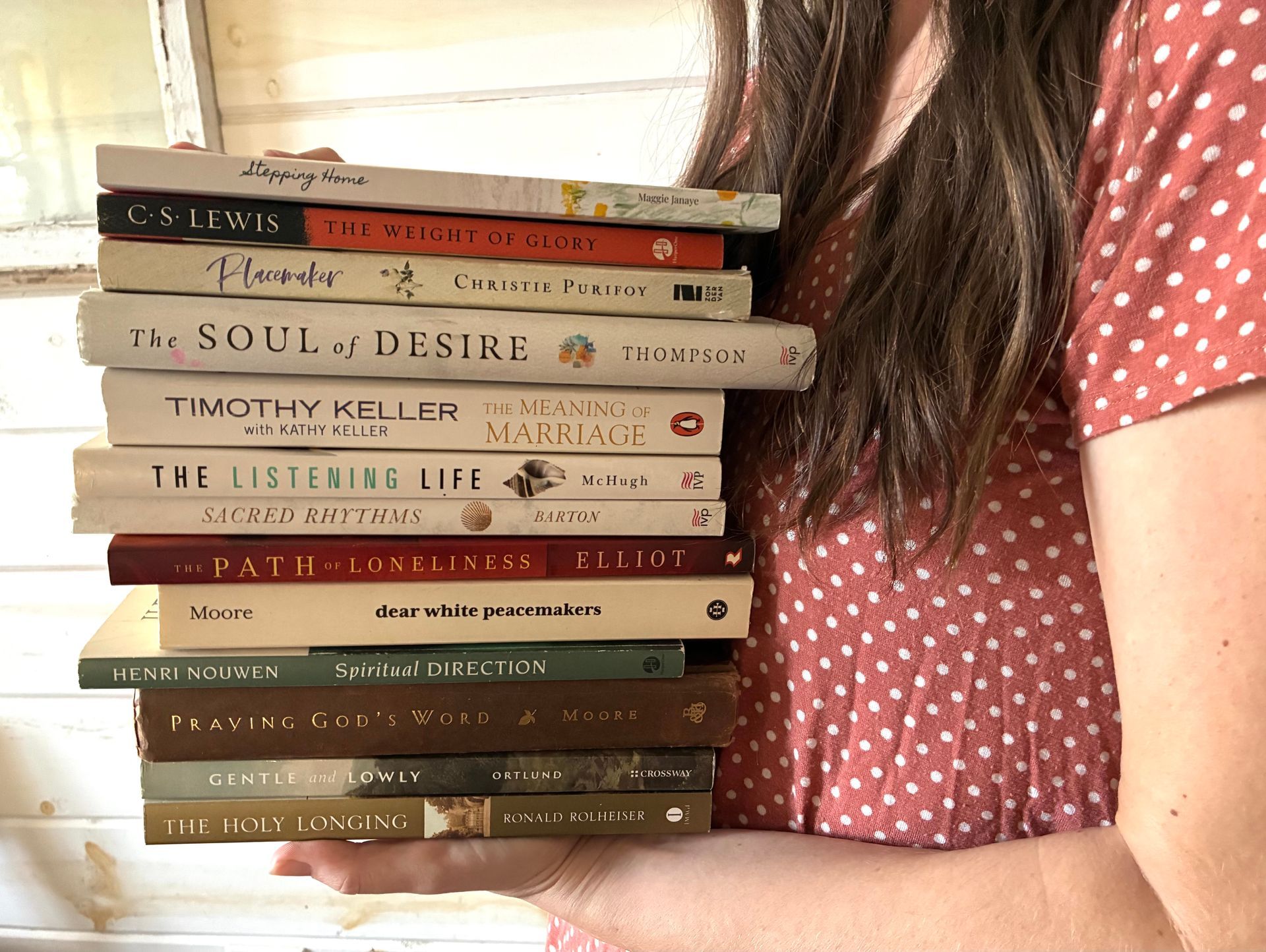
“Art can be seen as not hostile to faith, but as practice for it. Building the muscle of imagination makes us better fit to believe. And love, the central command of faith, requires enormous imagination, to understand the life, feelings, or needs of someone else” -Carey Wallace It’s because I’ve been deeply affected by good books that I enjoy making art on pages too. When we write, we engage imagination. When we read, we open to the experience of letting another soul’s imagination stir our own. Books are the most patient teachers. They never demand to be read. If you’ve had your fill for the day, they are content to rest in the corner for however long you need—whether a day, or a month. In a book, I step inside another’s mind, made available for me to enjoy or consider. But I can leave anytime I need to. I’m grateful for many people who chose to put their thoughts on paper, knowing they leave their readers with this gift. During the release of Stepping Home, I want to share some books I’ve been taught by—teachers I drew from while I wrote my book about belonging. I’ll share them in the order they appear in the endnotes of Stepping Home. The Weight of Glory and Other Addresses by C. S. Lewis To be honest, I’ve only read one of the other addresses, but “The Weight of Glory” is a must-read for any seeking soul. While originally shared as a sermon, it would never do for this to not be available in writing. I received this book as a birthday gift several years ago and savored every word of this sermon. Lewis puts language to desire in a way that soothes my fears, awakens my yearnings, clarifies my wants, and leaves me feeling free to let my heart come alive. Placemaker by Christie Purifoy I learned about Christie from an author I follow. Christie writes about trees and homes almost like they’re full of dreams—as if they are always open for us to help them bear a reflection of our perfect, eternal home. She leads her reader to see the physical places we share as tender invitations into the art of partnering with our Creator. Her love for magnolias and maples, and her soul-deep ache to tend well to the places that shelter her people, made me see life in our farmhouse home with new eyes. The Soul of Desire by Curt Thompson, MD I heard Curt Thompson interviewed on a podcast and needed to read his book. I read The Soul of Desire right after one of my biggest personal failures. It stirred my imagination for a hopeful future. Thompson explores the science behind our yearning humanity and our need for connection, and he considers it from a perspective of faith as well. His book gave me both scientific and biblical reasons to see my ever-searching heart, not as defective, but as beautifully made and capable of coming to trust and believe in the goodness God has in store. The Meaning of Marriage by Timothy Keller with Kathy Keller Nano and I did this study with a church small group. It’s a grounding, relatable guide that validates the human longing for companionship and takes great care in addressing the obstacles of attachment and commitment. What gave it the most value to me is how it stayed in tune with the desires of the reader and acknowledged our humanity with frankness. Marital conflict and sexual struggles were handled with candor and grace. It prompted good self-reflection. And it did a beautiful job of connecting the needs of marriage, in all aspects, with the work of Christ—both in laying Himself down for His bride, the church, and in submitting Himself to the Father. The Listening Life by Adam S. McHugh This is also a book I learned about from an author I follow. I’ve never read a better book about listening. Every time I read it, I remember how healing it feels to be listened to, and how powerful a gift we share when we choose to listen intentionally. McHugh walks his reader through the art of living life with a posture that holds space—to hear what lies beneath the surface of our lives and those around us. Whenever I return to McHugh’s words, I feel exposed in my need to listen, and also gently led to a richer place. Ideally, I’d like to read this book at least once a year to help myself remember. Sacred Rhythms by Ruth Haley Barton I read this as part of a course I took on contemplative spirituality. In a noisy world, Barton invites her reader to slow down on the inside and embrace rhythms of solitude and stillness. She helped me learn beautiful ways to savor and experience Scripture when I need a break from diagrams and intellectualism. She connects deeply with desire, encouraging her reader to know that the longing for more is valid and worth our deep attention. The Path of Loneliness by Elisabeth Elliot The summer after I turned eighteen, I ran across this book for sale at an event. The title drew me in because I felt deeply alone. I’ve read a few of Elisabeth Elliot’s books and this is my very favorite. While not every page resonates with me, this book as a whole reaches me at my core every time I read it. It comforts me, convicts me and leads me to embrace the gifts that lie along the path of lonely places. While a good bit of what she writes comes from her two experiences of being widowed, Elliot’s words are deeply applicable to any kind of lonely season. Dear White Peacemakers by Osheta Moore Osheta wrote this after George Floyd’s death, and lovingly addressed it to her white brothers and sisters in Christ. In a way, she speaks to Christians who want to help bring us away from racism as a culture, but would like to know more about what it feels like to be in someone else’s shoes. I ran across her book online and wanted to learn from her perspective. She dives deep into the art of balancing grit and grace in the desire for peace. I find so much in her words that helps me consider more deeply, from a biblical perspective, what it means to listen, to repent, to take accountability and to embrace ways that make for peace. Spiritual Direction by Henri Nouwen This was originally a discourse Nouwen shared that was turned into a book after his lifetime—by one of his students, and by his editor. I came across it at a bookstore. I found it to be deeply refreshing in helping me hold space to listen to the voice of the Spirit of God. Nouwen addresses how we can create better space for this in our hearts, in Scripture, and in church community. While reading, I felt encouraged in my identity in Christ, and challenged to plainly see things I chase after for the wrong reasons. Not every teaching in the book was for me—and as for anything, I’d encourage testing this book through the lens of Scripture. Praying God’s Word by Beth Moore In Stepping Home , I share the story of how I stumbled upon an old stained copy of this book on the day I turned 29. The next morning Beth’s words had me in tears. In a kind way, she helped me to be pricked by Scripture, which prepared my heart to be faced a few days later with a difficult truth from a sermon that I needed to hear. This book is a helpful guide to using Scripture to pray through various struggles in life—from rejection, to idolatry, to despair. For each specific difficulty, Beth speaks into your heart, then provides words to help you in prayer—prayers she’s written based on specific Scripture. Gentle and Lowly by Dane Ortlund I learned about this book while sitting in church. I found myself so hungry to hear what Scripture shares about the gentle heart of Jesus that when I finished the book, I turned back to the beginning and read the whole book through again. Ortlund shares the profound truth that when Jesus describes his own heart, the two words He chooses are “gentle and lowly.” This book is full of Scriptural assurance for the sinner, the doubter, the one who lives with fear and guilt. It does a thorough job of reaching into the reader’s heart, and carefully showing from Scripture how deeply God’s heart longs to meet His children where they are. The Holy Longing by Ronald Rolheiser While I wouldn’t agree with Rolheiser on many things, I find so much rich truth in his perspective, so much to gain and learn from. Most every time I hear him quoted, his words strike me to my core, and books about longing will always catch my attention. He speaks to our felt sense that our passion and our spirituality are at odds with each other. He invites his reader to consider how our longing, even our sexuality, is interconnected with our spirituality. Rolheiser invites his reader to come to the table of spirituality as a whole person, where our passionate parts can learn to thrive in healthy ways. I haven’t finished reading his book, and again, encourage discernment. Each of these books have met me in deep places. To share about them all stirs my memories and my gratitude for the means God uses to meet us. Perhaps one or two of these are books God has used, or will use, to meet you too. These twelve books all play a role in my own written journey. If you’d like to read a book that combines these ideas, that’s what you’ll find when you read Stepping Home. How do we engage in faith without pretending away the desiring, aching, yearning parts of us? It’s a healthy question to sit with, one that invites authenticity. I don’t promise black and white answers, but I share my favorite ways God has met me in this question. I’m so happy to share about the gift that is open for all—the gift of always having the option to take another step toward Home. "Stepping Home by Maggie Janaye" is available now through Amazon and other retailers.
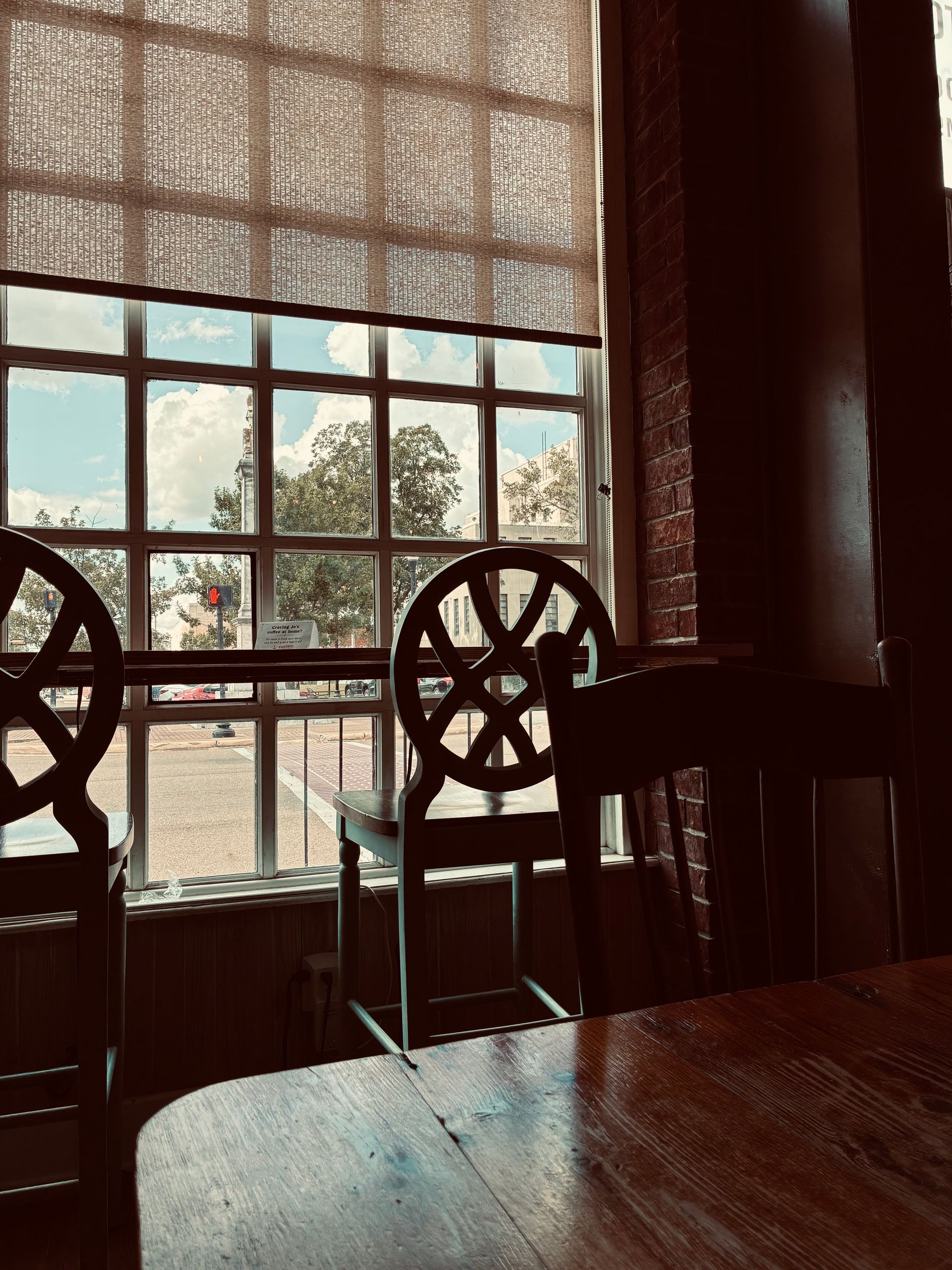
On a chilly November day in 2018, I woke up feeling heavy with the weight of disappointment and unanswered questions. I had taken so many risks over the last several months—emotional risks that left me feeling exposed and empty. Could life go anywhere good from here? I reached for my Bible and ended up in Psalm 121. “I lift up my eyes to the hills. From where does my help come? My help comes from the Lord, Who made heaven and earth. He will not let your foot be moved; He who keeps you will not slumber.” I locked onto verse three. “He will not let your foot be moved.” This is what I longed for—to trust that God had me…and that life could be more than a downhill tumble from here. Tears came, because I wanted to believe the words I read, but I wasn’t sure where to find the faith. I journaled a prayer, and told Nano about my wish to believe with more sureness that this could be true for my life. He listened while he finished shaving, then gave me hope to borrow. Over the next hour, I bundled my children in their hoodies and delivered them to their teachers—then made my weekly trip to Jo’s for coffee and a day of writing. Like every Wednesday morning, I greeted the familiar coffee shop faces, and ordered the signature latte. I found my favorite table by the window—bright with warm sunshine. I opened my journal to where I left off that morning. My wish continued to stir. I felt scared my heart was defective, and I longed for more light to guide me to hope. Around mid-morning, a low voice spoke to me—the man who just walked in the front door. I looked up to see twinkling eyes and an unfamiliar, fuzzy face. Ears tucked into his beanie, he approached me with a teddy-bear-like presence. With a careful slowness while he read my face, he placed his hand on the table in front of me. He said he hoped it didn’t come across the wrong way, but when he walked in the door and saw me, something urged him to come share a message. “I think you’re supposed to know that God says your heart is beautiful. And He is putting all of its broken pieces back together.” I felt a bit unsure, but curious, so I listened on. He continued for some time and I don’t remember everything, but I do remember these words, “You can trust that your help comes from the Lord who made heaven and earth. He will not let your foot be moved.” While he spoke, my eyes misted over. God sees me. When I heard him speak the words of Psalm 121, say them aloud, I knew God said yes to my prayer. He didn’t hesitate to help my unbelief. I learned the man’s name to be Chris, and I shared about my morning while drying my eyes. He smiled with the jolliest smile and said he just knew he was supposed to say something. I asked for a picture with him to help myself remember the moment. In the last seven years, I’ve seen him maybe five times. Jo’s is the only place I’ve ever seen him and he always has timely words of courage to share. He is one of the many reasons I love local coffee shops. In the light of Jo’s front window, I’ve put dreams onto paper, poured prayers into journals, and have met the image of God in dozens of caring people. At least a couple times a month, I still return to Jo’s to see if I can find a seat at my favorite writing table. When I settle into that old, familiar place and look around, my heart fills with memories of the faithfulness of God. It fills me to return to that moment and the place it happened. There are no supernatural qualities to that table or that building, but the act of returning there is an intentional practice that grounds me. It’s a tangible way to bring my heart back to a place where it’s easy to remember: I am loved and seen by a God who knows me.
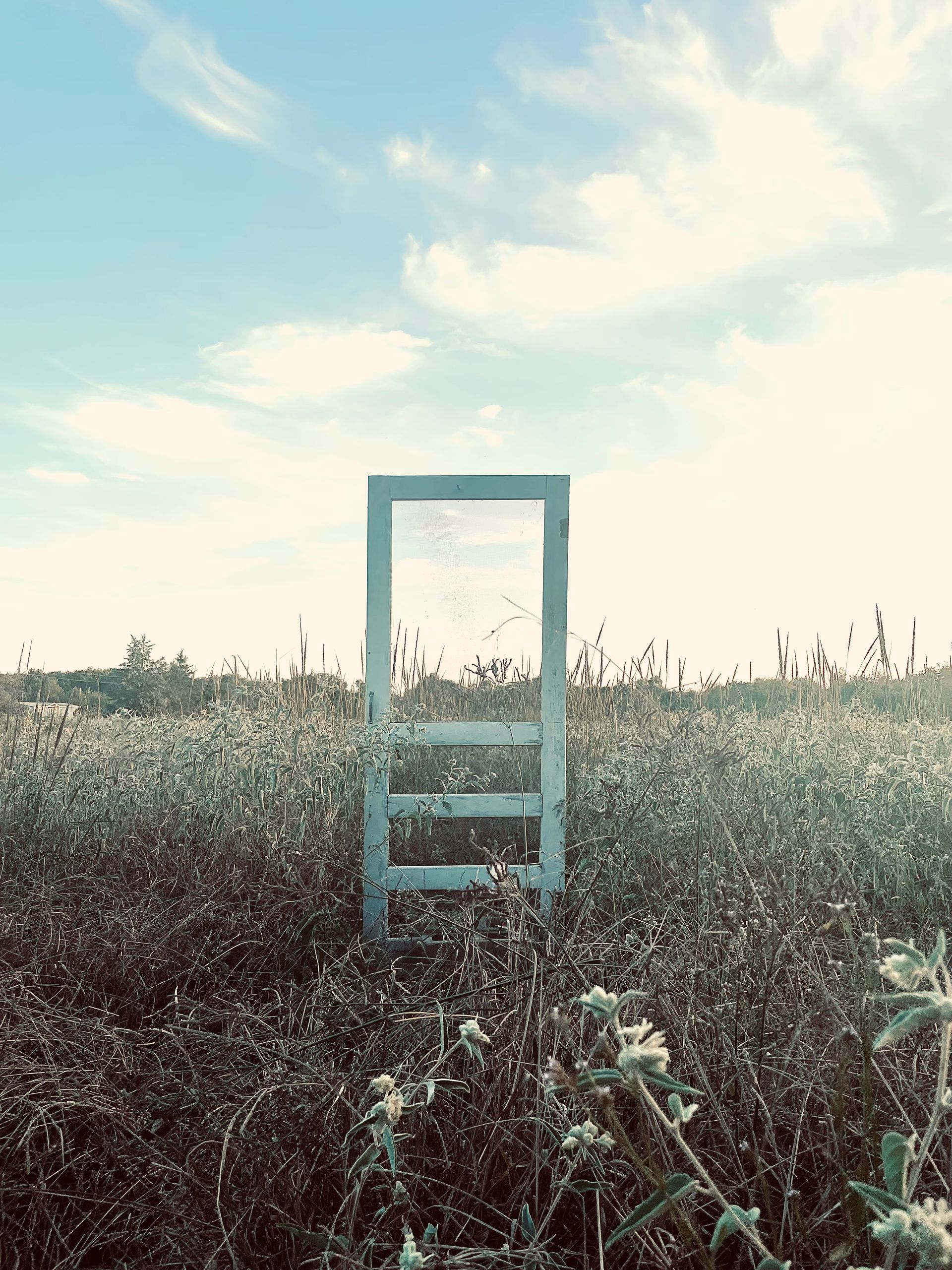
It was the beginning of May, and my husband’s words over the phone left me feeling defensive. While I listened, I looked in the mirror and didn’t like the person looking back at me. Nano asked me to consider something that, in reality, could shape my person. He asked me to think about what my actions may have felt like on the receiving end. My heart raced. My jaw tightened. Restless, I paced around the living room while he spoke. My steps got heavier, more like a march. Trying to listen through the noise of my children, I stepped over toys and stubbed my toe. My chest started feeling tense. My breath came faster. I wanted to spill my anger, and my frustrated words came out. I spoke to defend myself. My anger was real, but Nano didn’t need my anger. My tears came. I didn’t like my response. Why does this make me so angry? Continuing the conversation right then didn’t seem wise. So I said so. We agreed to talk later and said goodbye. Two of my kids rushed up to ask for help with their project. I started to work with them while my thoughts readied to boil over. Then I remembered times when I’ve tried to engage with my children while I felt this way and how it never ended well. I told Liesel and Gideon how I needed a few minutes to calm myself down after the phone conversation. They understood and made their way to the bedroom. I plopped down in the big leather chair, closed my eyes, and breathed deep. I listened to the birds singing outside the window behind me. I heard the breeze blow as my kids played in the next room. I remembered I still belong to a good God. My prior thoughts fell quiet. I remembered some therapy conversations from the year before. Sometimes, fear distorts my reality. I tried to imagine what my therapist would ask. What are the simple facts of what was stated? Did I attribute a meaning to those words that was influenced by fear? Nano simply asked me to consider that my repeated invitations to a friend who clearly didn't have the time for a visit may not be as friendly as I hoped. It’s all he asked me to reflect on, and he was correct. But what I translated those words into…was not at all congruent with what was actually being said. Even while Nano spoke, I heard the story differently in my head. With the phone to my ear, fear spoke to me too. He’s saying you weren’t even trying to be a good friend. He’s accusing you of trying to be hurtful—saying you’re a terrible friend. My fear also began saying this one big, scary thing: When you try to help people the best way you know how...you only hurt people. I had never identified my fear like this. The more I reflected, the more I realized what is true. My fear was telling a story I’ve often believed. It’s a story that feeds my self-pity and shame. In that moment, I realized the person to be angry at was not Nano. His words could help me be a better friend if I could hear beyond the shame and learn. Because it’s true…I honestly wanted to be a good friend. But, my insistent invitation was not so beneficial. One truth doesn’t have to nullify the other. Both can be true. The one to be angry at is the enemy of my soul who loves it when I listen to fear. My soul knew it was time to be angry, and rightly so. But my mind did not know what to do with my anger until I acknowledged what my heart feared. My soul’s enemy wants to rush me forward in anger, or paralyze me with shame. He loves to numb me with shame—where I won’t have ears to hear information about my actions that can help me love better. He wants to show me my husband as an enemy, rather than someone who wants to see me grow. He wants me stuck in fear where I won’t step toward love. This situation was not what the voices in my head played it up to be. On the other side of shame, I felt free, and this story seemed easier to navigate. When I loosened my grip on the scary narratives, I found my footing in the facts. While I tried to be helpful, I did something unhelpful. While I cannot change that, I can hear feedback with an open heart. I can accept the situation, own it, and do my best to carry what I learned into the next step. I’ll do many imperfect things. The more willing I am to accept this reality, the more effectively I can move forward. When I listen to the good news of Jesus’ work for me, the unhelpful and hurtful things I’ve done do not define me. In the security of Christ, I have an identity that is never changed by mistakes I’ve made. I am covered in His life. Love can knit damaged things back together. Not through hands that are experts at knitting, but through hands open to the work Love is forming. We need ears to listen, and hearts open to truths that we don’t like to hear. God, give us grace to recognize the fears that cloud our view. Provide us with ways to clearly see the story beyond the fog of shame. The conversation continued later that day, and our relationship grew…hard, holy, and healing. It’s one of the most sacred gifts for two people to know and be formed by each other. Our God is good. His arms are more than able to carry us through, while He refines us for the Home we’re made for. _________________ This story was originally shared on May 11th, 2021, and has been edited for clarity. This post connects well with chapter four in my book, Stepping Home. Available October 14th!
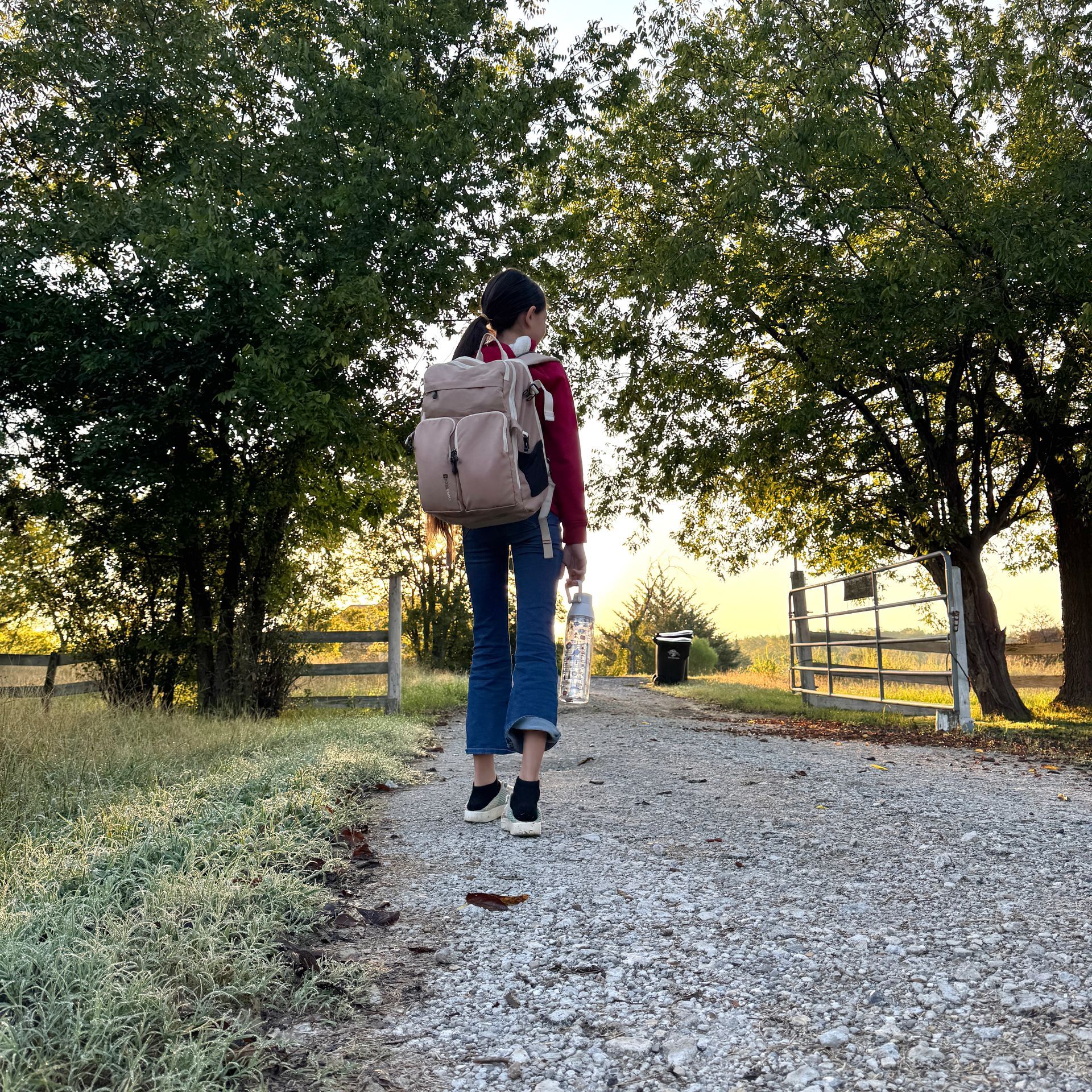
One morning last school year, I pulled my van of kids into the school drop-off and noticed someone I hadn’t seen in a while. As I attempted to wave, I missed the fact that my foot had not fully engaged the brake. I crashed into a pole that helps support the awning in front of the school. I scanned the area and let out a breath. Minimal damage. Everyone’s okay. From the passenger seat, my daughter gave a flat stare. Then she broke into a smile and informed me she’d be giving Daddy a full report. After I waved off Amayah’s remark, backed up and double-checked that the van was in park, I stepped out to apologize to the school principal who witnessed my mishap. He assured me everything was fine. He just wanted to know if I was okay. Thankfully, everybody was safe and the pole was not bent out of shape. I couldn’t say the same for the bumper on my van. In the words of Amayah, it has a black eye now. Compared to other incidents in my van, I knew this didn’t amount to more than a blip. Leaving the school that day, I did my best to drive with more care. I also wasn’t surprised it happened. While I drove, I imagined what the conversation might be like at dinner and half-smiled. Doesn’t it sound like something I would do? I recalled other driving mistakes I’ve made. My worst blunders happened on days when everything else was going wrong already. Shame piled on shame. I try not to repeat those days. For weeks after my incident in the school drop-off, I got plenty of reminders from Amayah. “Watch out for poles, Mom!” Friends and teachers have asked her about that day, so she has more than one reason to keep an eye on my driving. Several months and a summer break have passed since then. School is back in swing. The second day of the school year, I turned into the school drop-off and managed to keep things peaceful between me and the pole. I pulled up beside it and stopped in line. Within seconds, the van in front of me started backing up in my direction. While I racked my brain for how to respond, he crashed into me. Amayah tapped my arm and spoke with amazement. “I’ll tell Daddy…this one is not your fault!” The man parked and stepped out of the car with drooped shoulders. He looked defeated. With a mess of hair partly hidden by his ballcap, his outfit looked as thrown together as mine. He was deeply apologetic. He wanted to make sure I knew he wasn’t going anywhere, and intended to take care of the damages. His voice wavered and cracked. His eyes looked heavy—like the eyes of someone who could barely hold it together with the one-more-thing to go wrong. While he spoke, I felt deeply conscious of the pole just a few feet away. I told him how I’d already damaged my van. He expressed more concern and eventually gratitude. Coming away from the interaction, I felt less alone in my flawed humanity. I thought of times when I’ve beat myself up over mistakes, feeling like the only one in the world who could be so dumb. When I feel burdened by the weight of my inadequacies, people like the dad at the school drop-off may feel the same heavy load. It struck me how, as imperfect as it may be, we serve each other best when we show up to life. When I feel like a failure, I tend to want to hide away from life. The purpose of sharing myself with others becomes something hard to imagine. I become convinced I’ll be a bother. But on this specific day, I felt encouraged in meeting a man who crashed his car into mine. I saw his humanity and it widened my hope… I am not the only one who is human. This confounds every reason I give for retreating from life when doubts flood me. On my drive away from school, I knew I wanted to go forward with trust in God's all-knowing plan. I’ll keep doing my best to watch out for poles. However, even if I accidentally crash along the way, there is more to the story. God’s love is bigger than any human mistake and is able to use each flaw to share the goodness of His grace. ******* This post coincides with point number two in the guide available below. It also connects with the theme of chapter two in my new book, Stepping Home. Available October 14th!
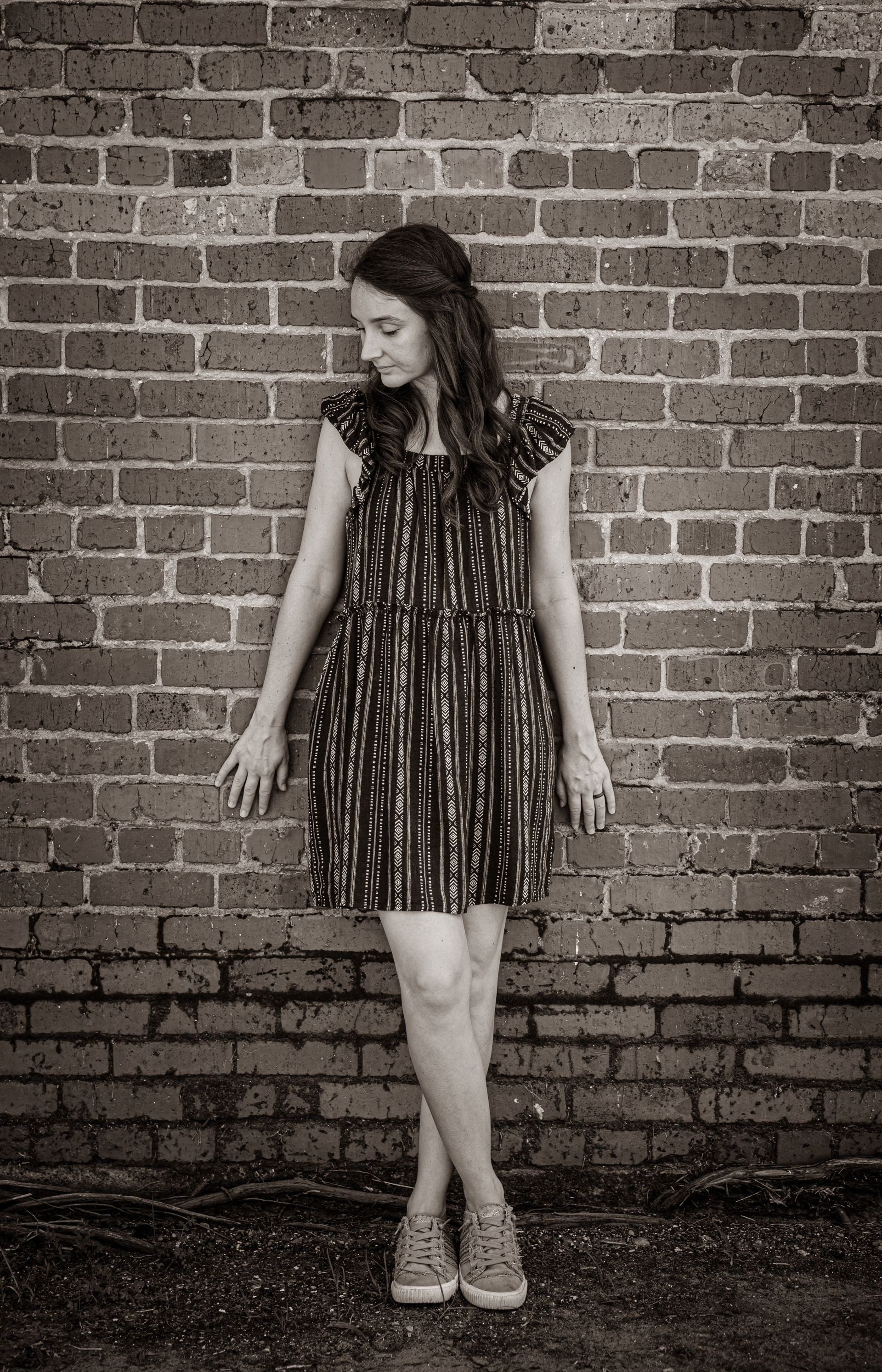
It was the glare of the sun off the icy surface of the pond that held my fancy. My eldest girl and little boy were pushing their toes against the edge to test the strength of the ice. Melting as it was, none of us had ever seen the pond out back of the house sit so frozen. It was new and delightful. Their giggles and awe were the soundtrack, with the glare of the sun freezing the moment too, like a dream. A hand reaching for mine. A question that remembers me, as if the Author of the story stepped in to tap a shoulder, show a smile, invite a heart like a dare - do you trust me? When so much in life feels bleak, that’s when my imagination can feel most eager to come alive , to catch the light and dream of what it’s saying. Lately, it’s a wondering question that keeps bringing itself back to my attention. Is this design on purpose? Maybe the imagination knows that it is a gift that was God-intended to help us hold onto hope for whatever it is that God is doing with the story? And when we’re most discouraged, is that where the imagination knows it has a role to play in helping us to imagine why we could still be hopeful? Perhaps imagination is most deeply intended as a beautiful gift meant to help a heart find hope. Maybe it’s a place longing to point to a God who is able to do more than all we could ask or think. For how would we think to ask for anything, if we could not first imagine the idea that God hears our asking and longs to meet us? And yet I know how much deceit likes to befriend my imagination, as if God’s own enemy wants to possess and distort his good creation. For my heart knows the path to be excruciating, when the story of life is imagined in a way that keeps one deceived about reality, not seeing what is really true inside of actual life. Imagining away the truth of what is real, has kept this heart stuck for seasons too long, exhausting itself for false kinds of hopes. And too, this heart has imagined away such good and real gifts, when its attention was most drawn to the gifts it didn’t have. It was a kind soul who first helped me see how I had imagined away the reality of so many different kinds of love in my life. How much beauty in the world can be imagined away for the sake of what we’re afraid to lose. Arresting is the lure to imagine the worst inside another if it can keep us in the comfort of the self-protections we know. In all the ways deceit longs to befriend our creative minds, perhaps all along what it’s most wanting is to interfere with the way we meet God. At its worst, my imagination would love for me to leave this present moment - the very place where God is waiting to meet me. And at its deepest root, deceit loves to tempt me to imagine God to be someone other than who He truly is… even if it’s in the most subtle of ways. For if I trust that God is as good a Shepherd as He promises to be, why would I need false hopes, false narratives, or preoccupation with what is missing? If I can trust God to be the God who provides, why would I need to imagine away the places in my heart that need care and support and healing for broken things? If I can trust that God is the same Love He says He is, who desires good for me, and is a safe place for all of me to come just as I am, why would I need to pretend away the worst in me, or imagine the worst inside my neighbor? Perhaps we are human with imaginations that are broken. Perhaps we all know this plight. We forget, and again we forget, how to imagine hope and beauty in light of our true God. And perhaps a shared humanity is the best gift we have to help imagine a tender world inside each other beyond what we can see. Maybe Love Himself knows each of us in the place where we are all children in need of the most tender Love. Perhaps a shared humanity is where He longs to meet us, a Love in flesh who lovingly wore this skin, grew into it, and cared for it as He cares for us. Imagine Him. See the truth of how He came for sinners (Luke 5:32), feel the truth of how He loved in flesh, and imagine how He looks at us. Maybe a broken imagination renews with healing hope every time it imagines the truth of Who He is. Maybe in the light of a loving Father who restores what things were made for, a broken imagination could rest so deep that it longs to hold rhythms of renewing in all of who He is. I’d dare believe it’s true, that imagination is a beautiful gift meant to help a heart find hope. So glare of Light, catch us up. A hand reaching out. A question that remembers us like a compassionate Author. Do you trust me? “Now to him who is able to do immeasurably more than all we ask or imagine, according to his power that is at work within us, to him be glory in the church and in Christ Jesus throughout all generations, for ever and ever! Amen.” Eph. 3:20-21. A prayer : Father, give us the grace to turn our imaginations into all of the Light of Who you are. Surprise us with the beauty of the glory of Christ and with it's imperfect, yet lovely reflection in Your beloved church. Practice : Read the stories of the Gospels and let yourself imagine that you are one who Jesus befriends and heals. Imagine how He looks at you, speaks to you, cares for you. Practice using your imagination to connect with your Savior. Consider ways deceit may be wanting to distort what is good and beautiful in your imagination recently. How does the truth of who your Jesus is, change the narrative?
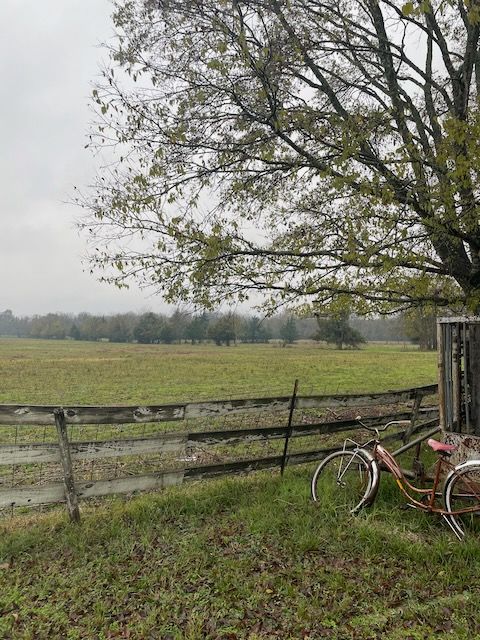
The page of the calendar had freshly turned to November when I zipped up my boots on a cloudy light morning to wander through the evergreens behind the house so I could feel it as real. For it’s one thing to trace across words about your Evergreen God and it is another to step under the limbs of the cypress trees and touch them and take in their scent and remember the One who courts your soul faithfully holding out His branches through every season, like an Evergreen who relentlessly holds out His arms for a heart who forgets how deep she needs them alone. (Hos. 14:8, ESV) And there before the evergreen, a heart could still quiet, a heart that longs for evergreen peace. It was thirst for the quiet that brought me to sit, rest by the water, where the wind had already come to play gentle with the leaves. Almost still, yet moving. It brought them slow, one by one, from the trees to touch down on the water and follow its soft turning. All was still, yet stirring on, as if every last thing was held. As if a heart could trust that while it is resting still, all of the pieces are held, carried along, by a God who has already purposed to work every last thing for good, for those who love Him. The stillness of the water can bring springs up from the soul, to fall down a face and bring relief for everything that the heart has been holding. It can soothe a soul quiet in a world that is all so tenderly held in the mystery of a Love that is beyond our understanding. And when a mind lets go of its smarts enough to simply rest down into what is, a world and a life that is so terrible, so beautiful that it is far beyond the limits of your understanding or control is the most astounding gift to get to be part of after all. It was after the sun set that day that the words found me. “As [Jesus] approached Jerusalem and saw the city, he wept over it and said, ‘If you, even you, had only known on this day what would bring you peace—but now it is hidden from your eyes.” Luke 19:41-42, NIV If you had only known what would bring you peace… Sometimes it can feel as if peace keeps flying away, and maybe if you just fight hard enough, say enough words, hold your ground enough, it will bring peace back to you somehow. Sometimes it can feel as if life keeps asking you to step through a doorway that feels like the absolute opposite direction of peace or anything right and everything inside you wants to slam the door. And when Jesus looked over Jerusalem and spoke those words, He knew what was coming (Lk. 19:43-44), how Jerusalem was getting ready to slam a door as if it would bring them peace. Yet Jesus knew, with a heart that churned in ache for them, that this would be their destruction. For they were more concerned over what looked wrong out there, than they were concerned with considering their hearts. Jerusalem wanted peace. And Jesus longed for them to know peace too. The deepest core of what they desired - peace - was the very same thing that Jesus desired for them. Yet, as readily as it was available, Jerusalem wouldn’t have eyes to see the Way that would truly bring them peace. And the image of Jesus’ broken weeping remains in Scripture with longing invitation to all who want peace. Here is a friend, a brother, who is not at war with our desiring hearts, but rather is broken with anguish when our trust in Him fails and we allow our desires to become distorted and twisted by fear into something that could never bring us what we most deeply want. It was Jesus’ Love, broken in longing for our own confused hearts, that carried Him to step through a doorway that felt like the opposite direction of peace or anything right and involved painful separation from His own Father. For the joy set before Him, Jesus chose the way of peace and stretched out His arms in the pain. Those arms stretched out are branches always green with the promise of life and a place where you will never once be without a friend, closer than a brother, who perfectly understands you without fail. While there are many ways we could go in this life and everyone of them will come with pain, here is the gift of an evergreen pain that comes with a promise always alive. And these evergreen trees that we can still live and breathe in the presence of promise us that the gift is here today. Until life passes, it asks us, always, which hard path we’ll choose, and heaven waits for us, longs for us, to look up, reach for the fruit that feeds a heart, and whisper it from a heart unshrinking… Be my Evergreen God.

